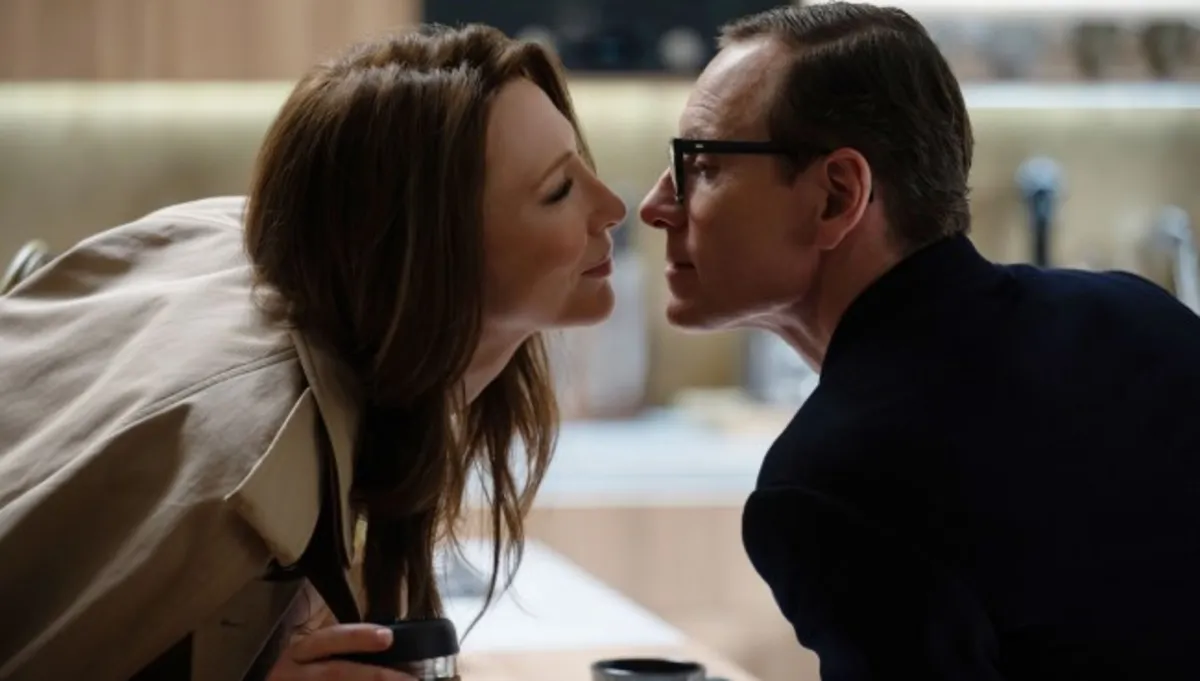
In the latest cinematic offering from director Steven Soderbergh, "Black Bag," audiences are treated to a gripping tale that intricately weaves the complexities of marriage with the thrilling world of espionage. The film centers on the seemingly unshakeable marriage of George (played by Michael Fassbender) and Catherine (portrayed by Cate Blanchett). Their relationship faces an unprecedented challenge when George is tasked with investigating his wife for potentially compromising their cyber security agency's top-secret operation, Severus.
The screenplay, penned by acclaimed screenwriter David Koepp, known for his work on blockbuster hits like "Jurassic Park," "Mission Impossible," and "Spider-Man," exemplifies his talent for suspenseful storytelling. In a recent interview with IndieWire, Koepp shared that the idea for "Black Bag" originated back in the late 1990s during his time on "Mission: Impossible." He recalled a conversation with a CIA advisor who discussed the difficulties of maintaining trust in personal relationships while living a life shrouded in secrecy. This concept became the foundation of a story that examines how love can coexist with deception.
Koepp emphasizes the idea that in a world where spies are constantly lying, the question arises: "When you can lie about everything, how do you tell the truth about anything?" He crafted the characters of George and Catherine to illustrate this struggle, showcasing a couple that is not unfaithful, but rather too faithful to one another, constrained by their secretive jobs. This unique premise allows for a rich exploration of the tension that exists within their marriage, a tension that diverges from typical narratives of infidelity.
Reflecting on his long-standing collaboration with Soderbergh, Koepp noted that "Black Bag" was developed during the tumultuous period of the WGA strike. With ample time to focus on writing, Koepp crafted a complex narrative involving six characters, ultimately sharing it with Soderbergh, who was immediately enthusiastic about the project. Their collaborative process is characterized by Soderbergh's quick feedback, allowing the creative vision to evolve rapidly.
As the narrative unfolds, Koepp strategically plants seeds of suspicion between George and Catherine, only to have them ultimately confront their challenges together. This resolution was intentional, as Koepp, who values his own marriage, aimed to depict a story where love triumphs over adversity, rather than leading to a painful breakup. This structural approach allows for a rewarding third act filled with tension and resolution.
Koepp adeptly navigates the delicate balance of revealing information to the audience, ensuring that viewers remain engaged without feeling misled. He describes the film as having a detective-like structure, where George's role as the investigator allows for a gradual unveiling of truths. The art of this narrative lies in the careful timing of revelations, creating a captivating experience for the audience.
Throughout the film, Koepp's character development shines, particularly in the portrayal of George and Catherine's relationship. He acknowledges the importance of creating contrasting characters, such as Freddie (played by Tom Burke), whose chaotic personal life stands in stark contrast to George and Catherine's seemingly solid marriage. By showcasing the flaws in the relationships of the supporting characters, Koepp highlights what makes George and Catherine's bond unique.
The film's themes extend beyond personal relationships to touch on real-world issues, particularly the creation and use of malware in modern warfare. Referencing historical incidents like Stuxnet, Koepp emphasizes the dangers of developing powerful cyber weapons, questioning the wisdom behind creating technology that can ultimately be turned against its creators. The portrayal of the cyber security agency in "Black Bag" is rooted in reality, drawing from established organizations like the National Cyber Security Centre (NCSC).
Koepp also faced the challenge of writing engaging dinner table scenes, which are often seen as difficult to execute in film. He embraced this challenge, crafting a 14-page sequence that serves as both the film's introduction and conclusion. By utilizing a dynamic setting where characters are under the influence of alcohol and drugs, Koepp successfully sustains interest and reveals character dynamics in a unique way.
As "Black Bag" continues to captivate audiences in theaters, it serves as a testament to the power of storytelling that intertwines personal and professional conflicts. With its rich character development, suspenseful narrative, and exploration of trust and betrayal, this film is not just a spy thriller; it's a profound examination of the complexities of marriage and the human experience.